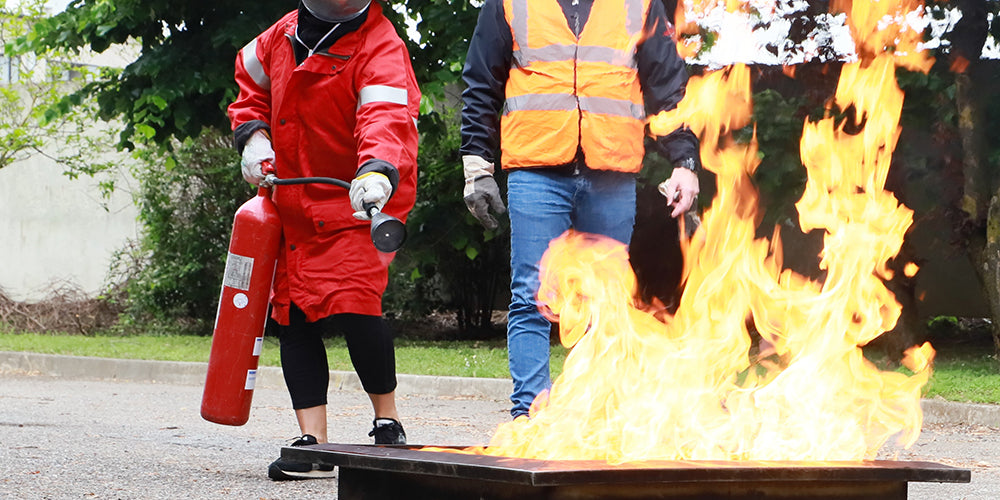You have no items in your shopping basket.
Basic life support (social care) eLearning courses
Ensuring safety and saving lives: The Vital importance of basic life support (BLS) in UK social care settings
Rose Mabiza
12-04-2024
In social care, where the well-being and safety of vulnerable individuals are paramount, effective Basic Life Support (BLS) is not just a recommended skill – it's an absolute necessity. From residential care homes to community support services, the ability to respond swiftly and proficiently to medical emergencies can make all the difference between life and death.
Key facts and statistics
- According to the British Heart Foundation, over 30,000 out-of-hospital cardiac arrests occur annually in the UK.
- Immediate initiation of CPR can double or triple the chance of survival in cardiac arrest cases.
- The Care Quality Commission (CQC) emphasises the importance of BLS training and competence for social care providers to ensure safe and effective care delivery.

Image by Rawpixel via Envato Elements

Image by Pressmaster via Envato Elements
Key definitions
Basic Life Support (BLS) - BLS encompasses a set of emergency procedures aimed at sustaining life during cardiac arrest, choking, or other life-threatening situations. It includes techniques such as cardiopulmonary resuscitation (CPR), airway management, and automated external defibrillators (AEDs).
Relevant legislation, regulations, and best practices
- Legislation - The Health and Safety at Work Act 1974 outlines employers' responsibilities to provide a safe working environment, including appropriate training in BLS for social care staff.
- Regulations - The Care Quality Commission (CQC) sets standards for social care services, including requirements for BLS training and competence.
- Best practice - Guidance from organisations like the Resuscitation Council UK provides evidence-based protocols for BLS training and emergency response in healthcare settings.

Image by LightFieldStudios via Envato Elements

Image by RossHelen via Envato Elements
Mastering basic life support (BLS) for social care - Saving lives, ensuring safety
Importance of BLS in social care:
- Swift response - The ability to respond quickly to emergencies is crucial in social care settings, where individuals may have complex health needs.
- Saving lives - BLS techniques like CPR and AED usage can significantly increase the chances of survival during cardiac arrest.
- Ensuring safety - Proper BLS training ensures the safety of both service users and staff, minimising the risk of harm during emergencies.
Training and competence:
- Regular training - Social care providers should ensure staff receive regular BLS training and refresher courses to maintain competence.
- Simulation-based learning - Incorporating simulation-based learning into BLS training can enhance skills retention and confidence among staff.
- Certification - Certification in BLS demonstrates staff competency and adherence to best practice standards.
Implementing effective policies and procedures:
- Clear protocols - Organisations should have clear policies and procedures in place for responding to medical emergencies, including BLS interventions.
- Equipment availability - Ensuring the availability and maintenance of BLS equipment like AEDs and first aid kits is essential.
- Regular audits - Regular audits of BLS policies and procedures help identify areas for improvement and ensure compliance with regulations.
Recommendations
- Invest in accredited BLS training courses for all social care staff.
- Conduct regular drills and simulations to reinforce BLS skills and emergency response protocols.
- Stay updated with the latest guidelines and best practices in BLS through professional development opportunities and resources.

Image by LightFieldStudios via Envato Elements

Image by LightFieldStudios via Envato Elements
Conclusion
In the dynamic and often unpredictable world of social care, effective Basic Life Support (BLS) is a cornerstone of quality care delivery. By prioritising BLS training, implementing robust policies and procedures, and staying abreast of best practices, social care organisations can ensure the safety and well-being of those they serve. Let's equip ourselves with the knowledge and skills to save lives and make a real difference in our communities.
Take the first step towards ensuring safety and saving lives in your social care setting. Invest in accredited basic life support (BLS) training for your staff today.
Contact us to learn more about our comprehensive BLS courses and how we can tailor them to meet the specific needs of your organisation. Together, let's make a positive impact and create a safer environment for all.
In social care, where the well-being and safety of vulnerable individuals are paramount, effective Basic Life Support (BLS) is not just a recommended skill – it's an absolute necessity. From residential care homes to community support services, the ability to respond swiftly and proficiently to medical emergencies can make all the difference between life and death.
Key facts and statistics

Image by Rawpixel via Envato Elements
- According to the British Heart Foundation, over 30,000 out-of-hospital cardiac arrests occur annually in the UK.
- Immediate initiation of CPR can double or triple the chance of survival in cardiac arrest cases.
- The Care Quality Commission (CQC) emphasises the importance of BLS training and competence for social care providers to ensure safe and effective care delivery.
Key definitions

Image by Pressmaster via Envato Elements
Basic Life Support (BLS) - BLS encompasses a set of emergency procedures aimed at sustaining life during cardiac arrest, choking, or other life-threatening situations. It includes techniques such as cardiopulmonary resuscitation (CPR), airway management, and automated external defibrillators (AEDs).
Relevant legislation, regulations, and best practices

Image by LightFieldStudios via Envato Elements
- Legislation - The Health and Safety at Work Act 1974 outlines employers' responsibilities to provide a safe working environment, including appropriate training in BLS for social care staff.
- Regulations - The Care Quality Commission (CQC) sets standards for social care services, including requirements for BLS training and competence.
- Best practice - Guidance from organisations like the Resuscitation Council UK provides evidence-based protocols for BLS training and emergency response in healthcare settings.
Mastering basic life support (BLS) for social care - Saving lives, ensuring safety

Image by RossHelen via Envato Elements
Importance of BLS in social care:
- Swift response - The ability to respond quickly to emergencies is crucial in social care settings, where individuals may have complex health needs.
- Saving lives - BLS techniques like CPR and AED usage can significantly increase the chances of survival during cardiac arrest.
- Ensuring safety - Proper BLS training ensures the safety of both service users and staff, minimising the risk of harm during emergencies.
Training and competence:
- Regular training - Social care providers should ensure staff receive regular BLS training and refresher courses to maintain competence.
- Simulation-based learning - Incorporating simulation-based learning into BLS training can enhance skills retention and confidence among staff.
- Certification - Certification in BLS demonstrates staff competency and adherence to best practice standards.
Implementing effective policies and procedures:
- Clear protocols - Organisations should have clear policies and procedures in place for responding to medical emergencies, including BLS interventions.
- Equipment availability - Ensuring the availability and maintenance of BLS equipment like AEDs and first aid kits is essential.
- Regular audits - Regular audits of BLS policies and procedures help identify areas for improvement and ensure compliance with regulations.
Recommendations

Image by LightFieldStudios via Envato Elements
- Invest in accredited BLS training courses for all social care staff.
- Conduct regular drills and simulations to reinforce BLS skills and emergency response protocols.
- Stay updated with the latest guidelines and best practices in BLS through professional development opportunities and resources.
Conclusion

Image by LightFieldStudios via Envato Elements
In the dynamic and often unpredictable world of social care, effective Basic Life Support (BLS) is a cornerstone of quality care delivery. By prioritising BLS training, implementing robust policies and procedures, and staying abreast of best practices, social care organisations can ensure the safety and well-being of those they serve. Let's equip ourselves with the knowledge and skills to save lives and make a real difference in our communities.
Take the first step towards ensuring safety and saving lives in your social care setting. Invest in accredited basic life support (BLS) training for your staff today.
Contact us to learn more about our comprehensive BLS courses and how we can tailor them to meet the specific needs of your organisation. Together, let's make a positive impact and create a safer environment for all.
About the author
Dr Richard Dune

With over 20 years of experience, Richard blends a rich background in NHS, the private sector, academia, and research settings. His forte lies in clinical R&D, advancing healthcare tech, workforce development and governance. His leadership ensures regulatory compliance and innovation align seamlessly.
Related blog articles
View allContact us
Complete the form below to start your ComplyPlus trial and transform your regulatory compliance solutions.







